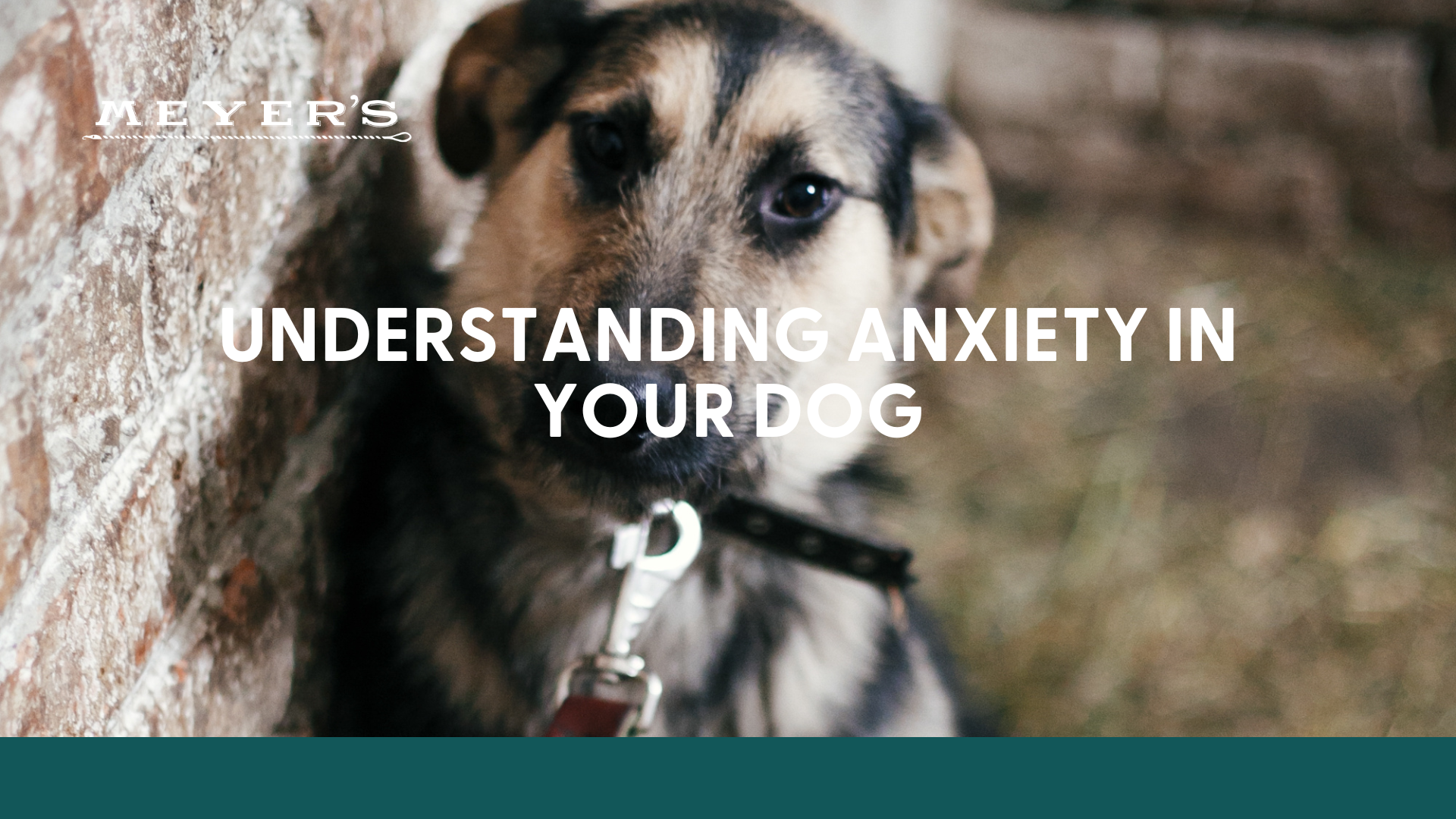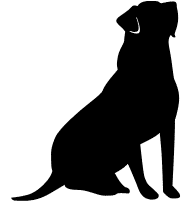
Understanding Anxiety in Your Dog
Dogs, in some aspects of their behavior are a lot like people. What may trigger fear or anxiety differs among people and dogs alike. The three most common triggers that cause dogs to experience anxiety are separation from their owners – also referred to as separation anxiety – loud, jarring or unfamiliar noises from things like thunderstorms, fireworks, or even vacuum cleaners, and social situations involving other people or animals, or being forced into an unfamiliar and frightening experience.
Those may be the triggers, but you may be wondering what the most common causes of canine anxiety are. They include:
Genetic Disposition
Some dog breeds are more prone to anxiety than others. Generally, high energy, intelligent dogs have a greater propensity to anxiety. Dog breeds that are more prone to canine anxiety include: Siberian Husky, German Shorthaired Pointer, Greyhound, Chesapeake Bay Retriever, Bernese Mountain Dog, Great Pyrenees, Border Collie, Standard Poodle, and some Terrier breeds, among others.
Medical Issues
Anxiety can be a symptom of other medical issues. Dogs with illnesses such as hypothyroidism, hearing loss, or pre-diabetes may experience anxiety. Aging dogs can also develop anxiety if changes in their bodies are associated with the nervous system. And toxic conditions like lead poisoning or exposure to pesticides can also bring on behavioral changes in dogs. No matter what the issue, it is best to always seek the advice of your veterinarian when your dog displays symptoms of anxiety. They are best equipped to determine if there may be an underlying medical issue causing it.
Lack of Puppy Socialization
Puppies deprived of social and environmental experiences during their first few months of life can become habitually fearful. And dogs that are taken away from their mothers too soon generally, before eight weeks, can develop social anxiety. This will make it difficult for them to know how to behave around other animals and humans.
Previous Trauma
Dogs can develop fears at any time, though they are most prone to develop phobias when they are 1-3 years old. The persistent and excessive fear of a specific stimulus is called a phobia. The veterinary field has suggested that once a phobic event is experienced, any event associated with it—or even the memory of it—is sufficient to generate an anxiety response that initiates a dog’s instinct to freeze, flee or fight. These are demonstrations of the most primal of all survival instincts in animals – and in humans – in the case of post-traumatic stress disorder (PTSD) or claustrophobia.
The most common among these events are loud stimulations a dog experiences as a pup, such as thunderstorms or fireworks. In this case, they may flee to their crate or a hiding place, or bark, howl or whine incessantly. For still others, experiencing a history of not being able to escape or get away from something that causes them fear, such as being locked away in crate, may also cause anxiety panic.
Previous incidents of trauma such as abandonment, abuse, and other mistreatment can cause anxiety down the line. In the case of a rescue or shelter dog, a history of abandonment, having multiple owners over time, being re-homed or experiencing prior neglect are all common sources. The condition may be perpetuated if the dog has been repeatedly abandoned or re-homed because of the very fact that they had unaddressed anxiety in the first place.
Treating Anxiety and Fear in Your Dog
In some cases, should you raise the issue with your veterinarian, they may prescribe anti-anxiety medication or a snug-fitting vest such as a Thunder Shirt for use during events such as the July 4th holiday.
Most forms of behavioral treatment are accomplished over the long-term and could in some cases span several years. It generally depends on the duration and intensity of the signs of anxiety. Prescription medications are not right for every pet and are typically only suggested in severe cases.
In cases of separation anxiety, depending on the severity, you may need to arrange for day care or a dog-sitter.
Desensitization is the most effective approach if the fear, phobia or anxiety is treated early. The goal is to decrease your dog’s reaction to what it fears. It is done as a low-intensity exercise so that the dog does not respond with fear or anxiety. It is best to seek the advice of an accomplished dog trainer and behaviorist t help you in the desensitizing or counter-conditioning process.
Counter-conditioning is training the dog to perform a positive behavior in place of its fear or anxiety. For example, you can teach your dog to sit and stay, and when your dog performs these tasks, you reward him. Then, when your dog is in a situation where he is usually fearful or anxious, you can redirect his attention by asking him to sit and stay.
You will need to help your dog with behavior modification exercises and teach your dog to relax in a variety of environmental settings. Encourage calmness when your dog appears distressed. Distract him and redirect his attention.
Fearful or anxious dogs may need to live in a protected environment with as few social stressors as possible if they do not do well in dog shows, dog parks or large crowds. And remember that not all dogs are calmer when crated; some dogs panic when caged and may injure themselves if forced to be confined.
Above all, absolutely avoid punishment for behavior related to fear, a phobia or anxiety. You are the person your dog looks up to for reassurance, trust and providing him or her a sense of safety and wellbeing. Be as patient as you would with a family member going through a trying time, and together you will learn to overcome their fear and anxiety.
Meyer’s Tails Up Farm is a complete retreat for your beloved pet. From lodging to daily daycare, grooming to training, we offer various services designed to help you grow a loving relationship with your dog. When caring for your best four-legged friends while you’re away, we pride ourselves on providing the ultimate safety, cleanliness, and specialized attention. Perhaps that’s why we are the #1 choice for dog lodging in Chicago and Rockford!

